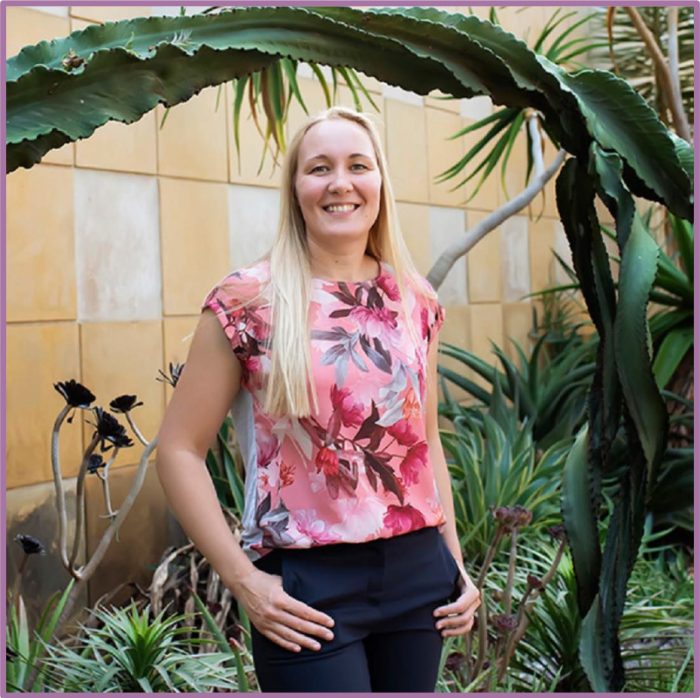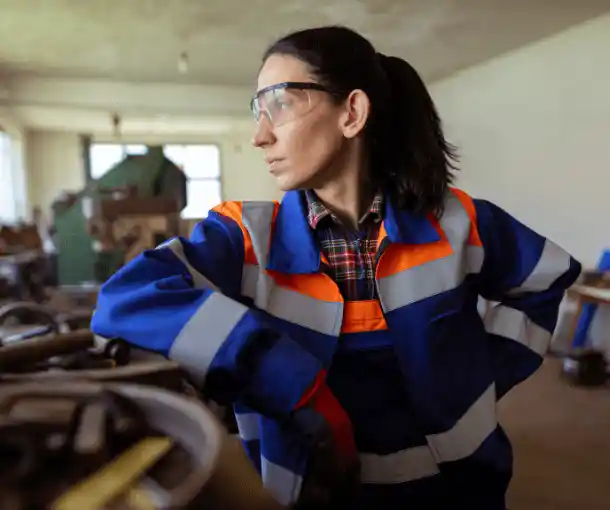This week, to celebrate Women’s Health Week (September 5 – 11), we’re exploring women’s health with tips on how to feel more empowered and confident, this time in the workplace.
Ostelin recently conducted research which revealed that women are less likely than men to rate themselves as very strong in leadership (34% compared to 43%) and assertiveness (28% compared to 41%) when it comes to confidence in asking for a pay rise or promotion. In fact, only two in five (40%) women overall see themselves as ‘very strong’ at work, presenting a gap between how they perceive themselves versus other females.^
To help Aussie women feel more empowered in the workplace, we spoke to Dr. Darja Kragt, an expert in leadership and leadership development, on her tips for feeling strong at work. Dr. Darja is a renowned scientist, lecturer in workplace psychology, and co-founder of The Leading Lab – a company that is dedicated to helping organisations and individuals to optimise leadership development through research-backed methods.
In this interview, Dr. Darja shares her tips on effective leadership and how to build confidence in the workplace:

What are some ways women can build their confidence in the workplace?
Start behaving like a leader, and you will quickly gain more confidence. My research shows that those who behave like leaders also begin viewing themselves as a leader. This is consistent with a psychological theory of self-perception, which says that we infer who we are from observing our own behaviour. There are two key leadership behaviours to practice – one focused on relationships, and the other focused on tasks. Once you see yourself as a leader, others will follow.
How can women actively support each other in the workplace?
Interestingly, I’ve found in my research that there is an unconscious leadership bias of women being biased towards other women, almost as much as men. Women must recognise their internal biases and hold themselves accountable first. If you are a leader in the workplace responsible for recruitment and promotional decisions, you need to keep your bias in check.
A great evidence-based strategy for dealing with unconscious bias is with ‘PAUSE’:
- Pay attention to what is happening
- Acknowledge or identify your reaction or judgement
- Understand other possible reactions
- Search for the most constructive solution
- Execute your action
In brief, do not act on your first impression, reflect on your motives in decision making, and enlist others to help with critical decisions.
What are your top 5 tips for women to be effective leaders in the workplace?
For young female professionals and seasoned professionals alike, my tips for being an effective leader and building your confidence and internal strength in the workplace include:
- Leadership is not a position; it is a process: Do not wait until you get promoted into a formal leadership position – start exercising your influence today! Become an informal leader by supporting those around you and sharing your expertise
- Do not let your own unconscious bias hold you back: Women often lack self-confidence to step up because they have internalised their own leadership bias. You must believe that you already have what it takes to be a leader.
- Do not let others assume what your leadership ambitions are: Managers often implicitly assume that women are not interested in leadership opportunities. Be clear and vocal about what you want. A good place to start a discussion is in your performance review.
- Seek out support: Female leaders are likely to face a plethora of negative reactions and attitudes, including tokenism and unconscious biases. You need to have a dedicated support network, such as other women in your industry. Recruit a mentor (or several!) who you admire and can learn from. Invest in coaching and ongoing leadership development
- Above all, do not get discouraged: Expect yourself to succeed. Research strongly suggests that women are more effective leaders in a variety of different contexts. Do not become your own obstacle.
Thank you Dr Darja Kragt (PhD) for volunteering your time & sharing your own experience regarding this subject matter.
____________
References:
^Ostelin Strength Gap Research – Research conducted among 1500 Australian adults by YouGov in April 2022, commissioned by Ostelin. Research available upon request from Ostelin. MAT-AU-2202514







